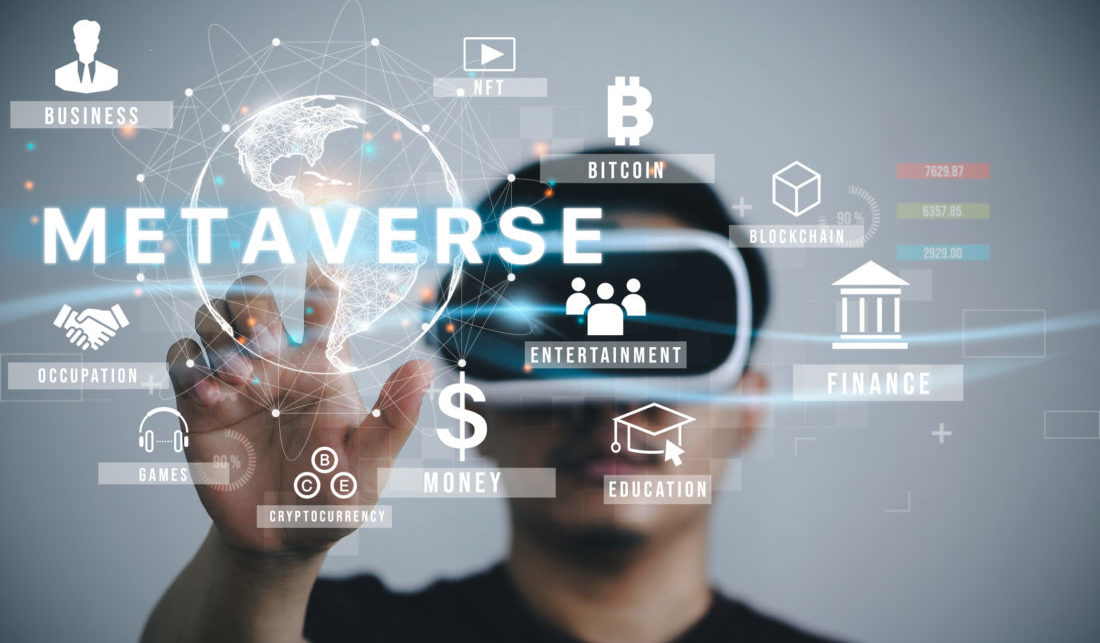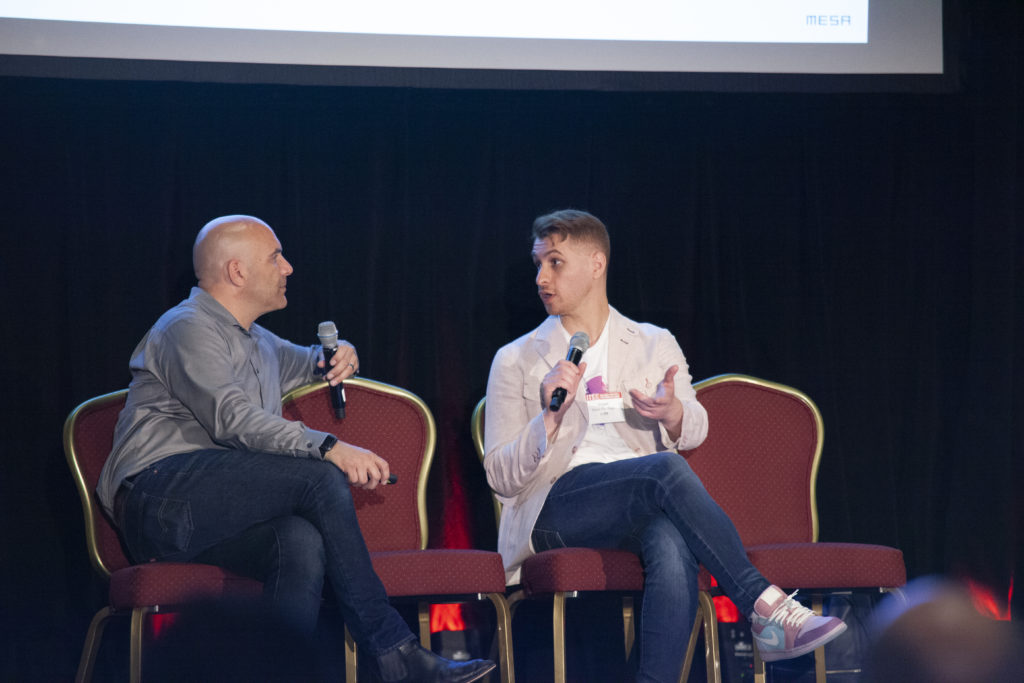M+E Daily

HITS Spring: The Metaverse Presents Opportunities for Hollywood, ICVR Says
Story Highlights
The metaverse presents significant opportunities for media and entertainment (M&E) companies, according to MESA and Sinan AlRubaye, chief experience officer at Los Angeles, California-based software development studio ICVR.
“This is just a little primer to get you up to speed” on what the metaverse represents to Hollywood, Guy Finley, MESA CEO and president, told attendees of the Hollywood Innovation and Transformation Summit (HITS) on May 19, during the Metaverse breakout session “What the Metaverse Means for Hollywood.”
During the session, he and AlRubaye cut through the clutter and defined the metaverse in terms and case studies that the M&E industry can easily understand.
Attendees learned the background of the metaverse and what today’s market means moving forward, as well as the design experience and where the future is heading as studios increasingly embrace the concept and integrate it into their multiple product offerings.
The metaverse is not just virtual reality, Finley noted. “It’s mobile. It’s AR (augmented reality), and it’s also audio, it’s video. It really is everything,” he said.
 The metaverse is very much like a persistent video game, Finley pointed out. “Let’s be honest, right? When you think of what of the metaverse is now, you think of” games with a massive world built around them, he said. “It’s essentially a persistent video game experience without all the rules and the tasks associated with it.”
The metaverse is very much like a persistent video game, Finley pointed out. “Let’s be honest, right? When you think of what of the metaverse is now, you think of” games with a massive world built around them, he said. “It’s essentially a persistent video game experience without all the rules and the tasks associated with it.”
But AlRubaye pointed out: “That’s just the early version” of the metaverse, predicting it is “going to grow” to pretty much incorporate all things related to the Internet.
Certainly interest in the metaverse has grown over the past two and a half years or so, “inflamed by the pandemic,” according to Finley.
But AlRubaye noted that the metaverse has been around for a while in one form or another. In the early 90’s, he recalled, there were a couple of massively multiplayer online-style video games that championed the concept of players creating items and then selling them to other players, which people today “associate with blockchain” and non-fungible tokens (NFTs).
There wasn’t as much press coverage around it back then but hardcore early gamers experienced elements of the metaverse for many years, AlRubaye said.
So how big will the metaverse become? Pointing to a Citigroup report about the viability of the metaverse and where it’s going, Finley said that firm predicted the metaverse will become a $13 trillion ecosystem. “I read this report and I don’t necessarily think they’re wrong…. We’re talking 2030” for that to happen, he said, adding: “That’s not that far away.
AlRubaye went on to point to the various promotions that artists have done in the music sector with NFTs and that sports teams have done with VR that point the way towards even more future opportunities.
We are “moving from a passive screen” to interactive experiences and “that’s just the beginning of it,”AlRubaye said, adding what it’s going to become “nobody knows; everybody’s speculating at this point.”
To view the entire presentation, click here.
The Hollywood Innovation and Transformation Summit event was produced by MESA in association with the Hollywood IT Society (HITS), Media & Entertainment Data Center Alliance (MEDCA), presented by ICVR and sponsored by Genpact, MicroStrategy, Whip Media, Convergent Risks, Perforce, Richey May Technology Solutions, Signiant, Softtek, Bluescape, Databricks, KeyCode Media, Metal Toad, Shift, Zendesk, EIDR, Fortinet, Arch Platform Technologies and Amazon Studios.









